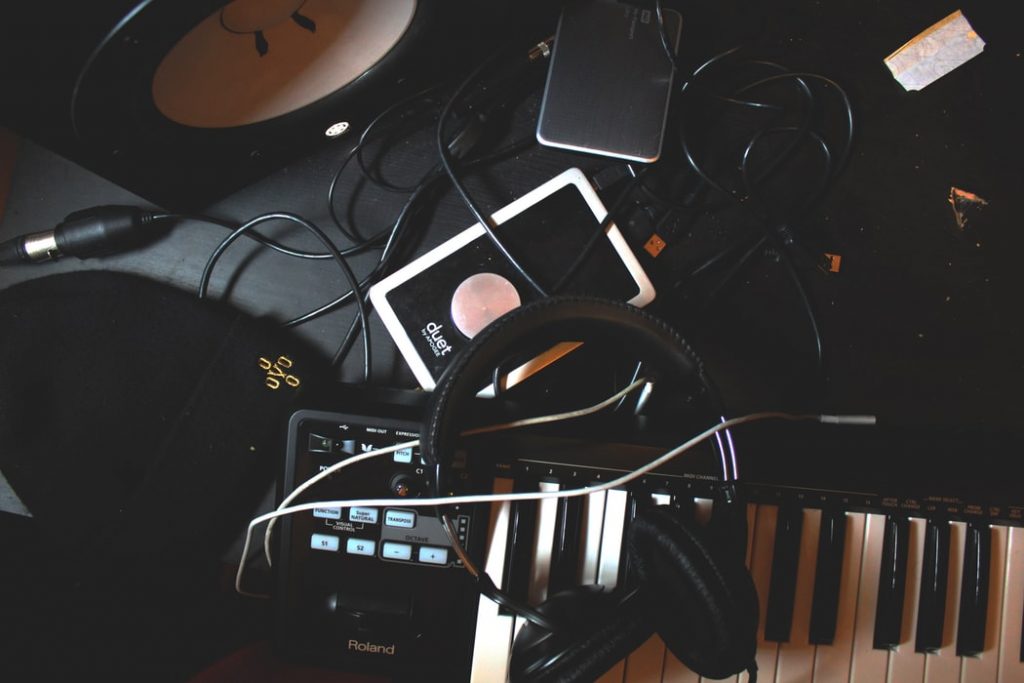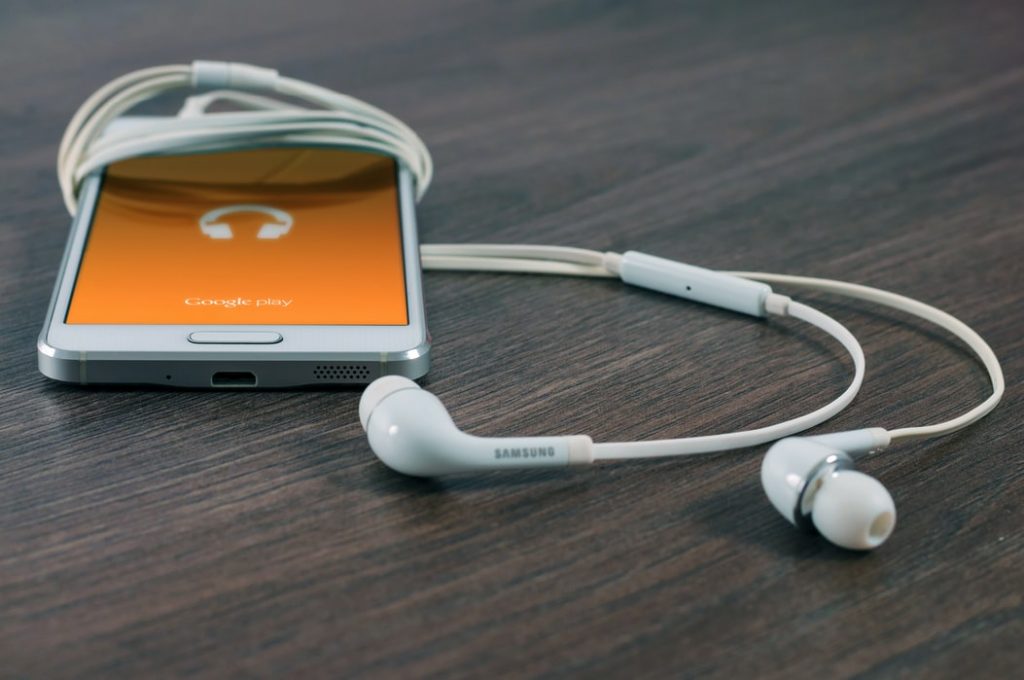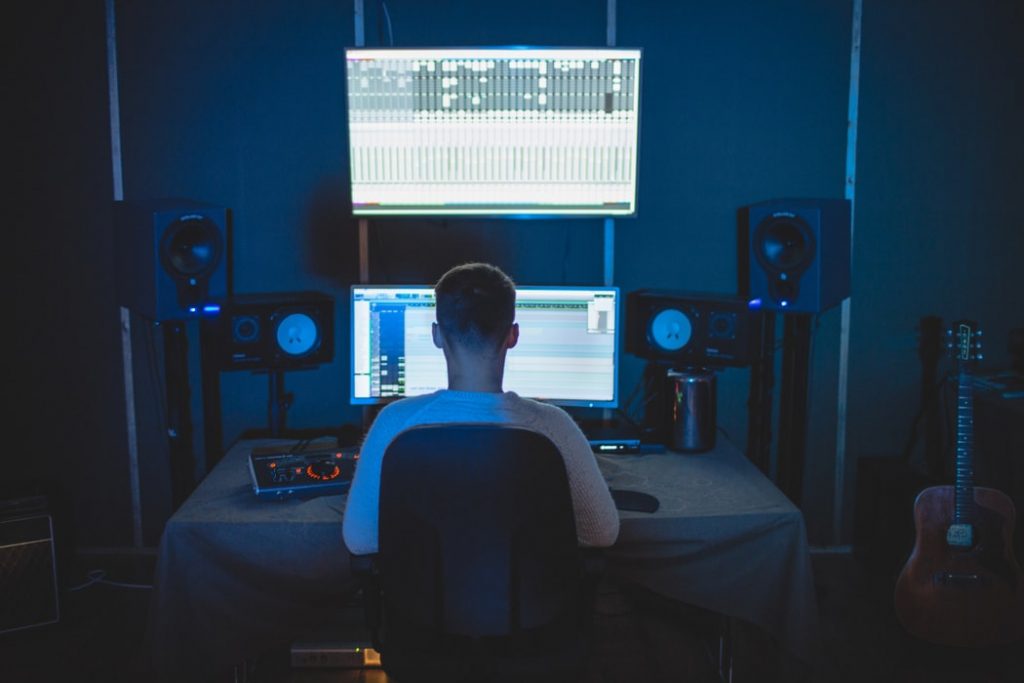Every singer, guitarist, musician, or band will find it challenging to reach their audience. To make music their professional career musicians need to understand the difference between two business models.
- B2C is selling music directly to the customers. The final customer means radio, TV, YouTube, Spotify, iTunes, and other streaming channels.
- B2B means selling music or sound effects to companies. Royalty-free music or sound effect are used in advertising, audio-visual projects, and marketing agencies as backgrounds. These songs don’t have any lyrics!
These are two different ways to sell music and make a living.
How To sell your music online indirectly?
If the music is not created for video games or jingles but your fans, then you can consider selling it online in two ways – Indirectly and Directly.
Today, the online streaming revenue is escalating. You can use musicdigi.com, an online distribution platform that can spread your lyrics across the globe. Your music can reach many people, who possibly transform into your fans. Besides distribution, composition, recording, and promotion will also play a huge role.
The popularity of your music will depend on the song quality and appeal, so you will need to take your music business seriously to earn a good fan base and revenue. By using digital distribution platforms, you can upload your album on –
Music download sites

img source: unsplash.com
-
iTunes
If you wish to sell music on iTunes, then you will need an aggregator. They are companies, which distribute your songs to multiple streaming services and music stores. If you don’t want to work with an aggregator, then you will require a Universal Product Code [UPC] and International & Standard Recording Code [ISRC]. Besides, you will even need the US Tax identification, which can be attained from the IRS website. To learn more visit the official website of iTunes.
-
Amazon
When you want to sell your music on Amazon or iTunes or Spotify, partner with a trusted digital distribution services and forget about the challenges of distribution and promotion. Everything will be handled by them for a nominal yearly fee, and you get to release unlimited music. They distribute your tracks to every major store and streaming services. Composers get around 91% royalty shares on every purchase, and withdrawals are fast trough trusted online payment processors like PayPal.
Do-it-yourself distribution means work with an online distribution platform. Fewer people or parties involved means less money to share and you can even keep your music rights. These distribution platforms even help you to monitor your sales & trend data associated with each release across different countries and streaming services or music stores.
Streaming services

img source: unsplash.com
-
Spotify
Spotify is a popular streaming service that facilitates users to listen to podcasts, music, and videos. To get your music on Spotify, you will need to partner with a popular record label but new musicians can check for a reliable online distributing platform. You can expect your Spotify playlist plays on major music companies and streaming platforms within 2 to 3 days. The royalties are paid every month. Spotify pays 70% of all income earned. You even retain the music rights, which is often not possible with the major record labels.
-
TikTok
To get your music on TikTok you will need a distributor or you can DIY. The promotion of your music available on TikTok is also doable via memes and influencers. Your track needs to be TikTok friendly because all music styles don’t survive on this social media channel. It needs to offer users easiness to create their personal content like lip synch. Catchy memorable lyrics are a great success.
-
YouTube
Digital music distribution platforms make it easy to get your songs on YouTube Music, Amazon, Spotify, and more. Upload your album on the digital distribution platform. You will even have to submit the release date and cover art. Your release is distributed in many stores and streaming platforms across the globe. Within a couple of days, your music goes live on YouTube Music. Every time a music lover streams your song, royalties are added to your account.
How to sell music online directly to fans?

img source: unsplash.com
-
Create a blog/website
You can even create your own blog or website to sell your album from there. WordPress is a free platform, which helps musicians to set their blog or website with ease. You can gain visibility and build a fan base using social media and popular streaming services like iTunes, Spotify, Amazon, YouTube, etc. With a website, you can offer samples to your fans and even share information associated with your new song or a live event.
With an increase in streaming, it is crucial to have a website. Some fans desire to support you directly, so they opt to purchase from your website. In this way, you earn more revenue. You can even stay connected with your fans via emails and sales.
-
Free services like Bandcamp
Bandcamp allows selling music directly without any yearly charges. They do deduct 15% commission on digital sales and 10% on merch, which is affordable because Bandcamp actively recommends your album to the public via their app, blog, and podcast. Currently, fans purchased songs worth more than 3 million from Bandcamp. This makes it a viable release platform. You just visit their website and sign up.
When to sell music online?

img source: unsplash.com
You can make your songs available via digital distribution services, which makes it simple to sell it and maximize your revenue. There will be a need to create another promotional strategy. Remember to get your fans in the loop the moment you start creating your album. It is essential to build anticipation for the new song and strengthen your affiliation with fans.
Take advantage of promotional features offered by digital distribution platforms – They also allow you to stage a pre-release, as it allows you to sell your album a few weeks ahead of the release date to premium users on Spotify. Tools like an email list, social media profiles, subscriptions, discount codes, etc. will help you to reach more potential fans and generate more revenue. Use a combination of every service mentioned above, so all kinds of fans ranging from casual to super-fans buys your songs.
If done properly, your relationship with fans grows strong and your sales maximize. This in turn can encourage you to create more melodious music in the future.



